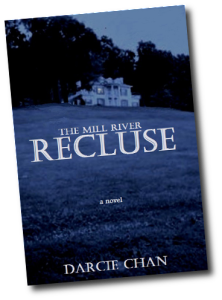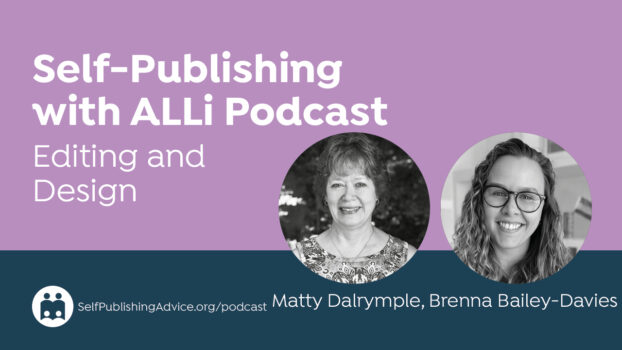“Be confident in your work, but first make sure your book is your very best work,” advises Darcie Chan, whose debut novel The Mill River Recluse sold over 650,000 copies and appeared in the New York Times bestsellers list for 28 weeks.
What's the secret of your success?
Truthfully, I'm still trying to figure that out! My best guess is that the story of The Mill River Recluse itself, and especially how it resonated emotionally with people, is responsible for driving sales. No amount of marketing I did or could have done could have sustained the book on the various bestseller lists. Only word-of-mouth recommendations from one enthusiastic reader to another can do that.
What was the single best thing you ever did?
I remained confident in the story I'd written, even though it had been rejected many times by both agents and publishers. I made it available in electronic form in the hope of finding a few readers and getting some valuable feedback.
Did you get lucky? What happened?
I was incredibly lucky. I tried some different kinds of marketing to get my book on readers' radar screens. Some of it worked, but some of it didn't. It was all trial-and-error for me. It was fortunate that what I did caught the attention of enough readers to start a word-of-mouth chain reaction.
How do you get/stay in creative mode?
When I'm in the writing phase for a book (as I am now), the story is constantly at the back of my mind. The things I do and see during the day often trigger a connection with a character or something that I've been working out plot-wise, or they might give me ideas to incorporate in the story. When I'm actually at my computer writing, I try to complete a chapter each week. I always begin a writing session by reviewing/editing what I wrote the day before, and I try never to stop writing for the day without knowing exactly what I'm going to start with next. So far, that has helped keep me from getting stuck!
How do you prioritise?
I find that I'm constantly juggling family/house responsibilities with writing. My family comes before everything else, of course, but most days, it feels more like I'm playing “mole-in-the-hole” than adhering to an orderly, prioritized “to do” list.
My second novel has been accepted for publication (Ballantine Books, March 2014), so I'm preparing for the copy editing and design phases of that. I'm also beginning to write my third novel which, like the first two, will be set in the fictional world of Mill River, Vermont.
What's your top tip for other indie authors?
Be confident in your work, but be careful not to put a book out into the world until you are sure that it is your very best work and professional in all respects (writing, editing, cover design, formatting, etc.). As with anything, you get only one chance to make a first impression, and every reader deserves a quality product.






[…] “Be confident in your work, but be careful not to put a book out into the world until you are sure that it is your very best work and professional in all respects (writing, editing, cover design, formatting, etc.). As with anything, you get only one chance to make a first impression, and every reader deserves a quality product.”—Darcie Chan […]
[…] Hocking and Barbara Freethy’s, and more akin to Hugh Howey’s: in Chan’s opinion, her sales were generated primarily from word-of-mouth referrals. Essentially, it was due to the quality of the single first novel that brought her success. […]
[…] —Darcie Chan […]
[…] Darcie Chan […]
Nancy, if you’re talking about beta readers — you just need to come up with several people who enjoy reading and are willing to read your book and offer brutally honest comments. Family, friends, work colleagues, etc. can all be great “test readers.” It’s important that you find people with different tastes in what they like to read. If you can find some that have writing and/or editing experience, that’s great, too. You want to receive varied comments and opinions. Try to keep an open mind about all the suggestions you hear…and then follow your gut and heart when you’re deciding which suggestions to take. 🙂
i would like Darcie’s advice as to how to find good readers for my first novel.
I am inspired by your success story. I have a completed novel and want to have some readers so I can receive feedback. How did you find readers for your first novel?
Thanks Darcie, for your success story. I’ve done some of the things you recommend, including Kirkus, but will now try others such as writer blogs. The most important things though are to work hard, love your work, don’t get discouraged and get lucky. Now, I’m going to try The Mill Rover Recluse. What’s there to lose – 99cents!
darcie, you are an inspiration to me and thousands of others, it has been a delight to watch your success and to read your posts and interviews….i’ve read a few things about your pricing strategies and I’m sure that others bumping into this interview would benefit from a few sentences from you on the .99 price point and what you think it did to assist you and if you’ve noticed any drawbacks……many thanks, can’t wait to read your next work
a
Hi, Andy,
I kept the price of my book very low because my main goal in releasing it as an ebook was always to get some good feedback on my writing, not to make money. When THE MILL RIVER RECLUSE was first uploaded in May 2011, I was completely unknown. I also had no clue about what would happen with my book or the potential of self-publishing to change my life. All I wanted was to encourage readers to spend time and (a little bit) of money on my book, and I thought the best way to do that would be to price it as low as I could — 99 cents. (The Kindle Select program did not exist back then.)
Do I think my book is worth more than 99 cents? Absolutely. I think just about any full-length novel is worth more than that! And sure, the higher royalty percentages that a self-published author receives at higher price points are wonderful, particularly when one is relying on income from self-publishing. But again, I was interested in feedback, and later, once sales started to go bananas and I figured out that there might be more writing in my future, in building a readership for future work. The more people I can entice to take a chance on my first book, the more I’ll have — hopefully — who will want to read my second. I’ve kept the price of THE MILL RIVER RECLUSE very low during the entire time it’s been out there for those reasons.
I will say that pricing is a very personal issue. Low prices (or today, even offering something for free) can be useful in building a readership or renewing interest in an already-published work. For a well-established author who has more than one book out there, though, I’m not sure it would make sense to keep everything at 99 cents.
One of the things I remember when I spoke to you for a post for The Author CEO on “Paying for Book Reviews” is that you thought that utilizing an organization, such as Kirkus, helped when approaching reviews sources, such as newspapers. You felt, from their perspective, it gave your book more (I am paraphrasing) “credibity”. Do you still see that as helping have a hand in your success? If so, what advice would you give authors in regards to working with such organizations and then carrying it over to those type of professional review sources?
Hi, Naomi,
I do think having a Kirkus review gave my book some credibility that it otherwise wouldn’t have had, because getting mainstream reviews for a self-published work is difficult, if not impossible. It was one of the few places I found that would review a self-published book using the same reviewers and standards as are used for traditional books. (This also meant that there was no guarantee I would get a positive review…but I was interested only in an honest review, and I figured that I could hide a negative review in a drawer, if I were to receive one.)
Only one newspaper reviewed my book as far as I know. The Rutland Herald ran a beautiful review of it after it had appeared on the NYT list, and I think they did so only because the book is set in southern Vermont — it’s a “local interest” story. So, the Kirkus review didn’t help with newspaper and other mainstream reviews much. However, I do think that being able to use some nice quotes from the Kirkus review on my ebook retail pages helped persuade some readers to take a chance on it. I have no way of quantifying how many more copies sold as a result of having the review…but I know that on the days on which I ran features of the book, traffic on my Kirkus review page spiked, and the page views lasted several minutes on average (which meant that people were reading the whole review). I believe the review helped sell more copies of my book, but how many more I have no way of determining.
Credibility with readers was a major reason I decided to get a Kirkus review. The other was exposure — Kirkus sends out newsletters to libraries and other organizations, as well as to other people in the media and entertainment industries. Getting people to notice your book if you’re self-published is a challenge, so that kind of exposure appealed to me as well.
As for other authors — I assume that, like me, most self-published authors have a very limited budget for marketing and publicity. I’d advise other authors first to use their $$ to maximize the number of people who learn of their book, which usually means getting the book listed on the various blogs and websites that feature new and reduced-price ebooks. If sales pick up and an author recoups his or her initial investment in marketing or publicity and has a little more to spend, I think doing a Kirkus review might be something worth considering at that stage.
Because of Kirkus’s name-recognition in the book world and the caliber and honesty of its reviews, I thought it was worth it. And, there are very few options for credible, unbiased reviews for self-published authors other than Kirkus. I have never, and would never, pay for a review of any kind from a “mass review service” — the kind that have caused problems for some self-pubbed authors on Amazon — and I’d never pay for any review that I knew or was told would be positive. I just wanted honesty, really. I do hope that as more people self-publish, more mainstream reviewers will become willing to review that work.
I remember writing a blog post about Mill River Recluse when it made it to #2 overall in paid books at Amazon and how exciting it was for Darcie and indie authors in general. Great job and keep it going.
Well done, Darcie! What great stats!
Are you able to expand a little on which aspects of your marketing worked over others?
(As I write for children this is less for my benefit than for others who may be reading – though I’m sure some of it will be of relevance to me too…!)
Hi, Karen,
I did try many things — hanging up printed signs at post offices and other local businesses, Facebook ads, website banner ads, etc. But, what worked best for me marketing-wise was targeting blogs and websites that cater to ebook readers. I had features of my book on sites like EReaderNewsToday, Pixel of Ink, and Kindle Nation Daily. At the time, each of those sites had tens of thousands of followers…now, they have hundreds of thousands! (I’m told it’s increasingly difficult to be listed on those “biggies” now, but there are new ebook-recommending websites springing up all the time.) I know Pixel of Ink has a sister site specifically for books for younger readers. But, any website with a decent number of followers, and where you can have your book listed, along with live links to the sites where it may be purchased, would be great.